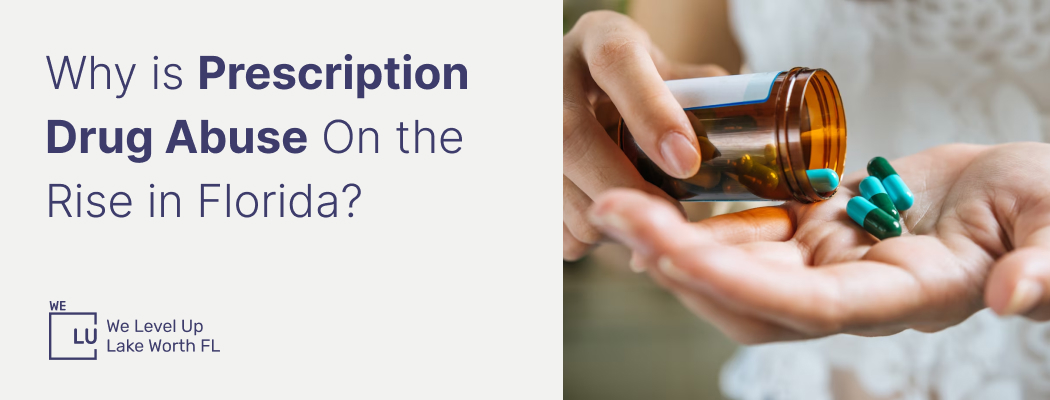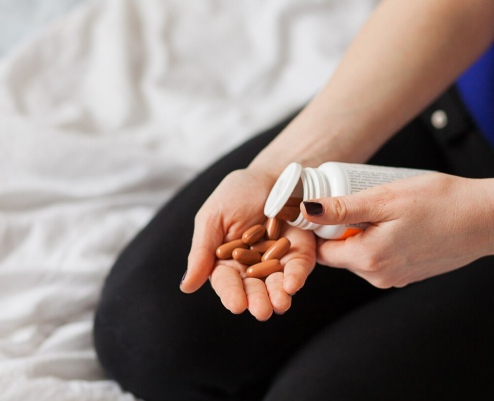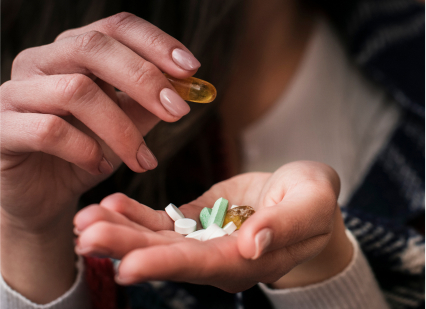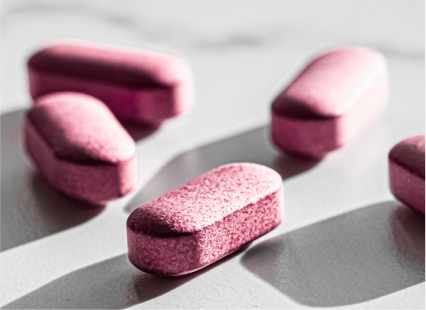Florida is fighting a serious problem with prescription drug abuse. This issue harms people and their families deeply, affecting communities and the state’s economy too. To address this, Florida has set up rules for prescribing drugs and programs to watch drug use.
Rehabilitation centers are an important part of this statewide initiative as they play a crucial role in recovery and prevention. Centers such as We Level Up in Lake Worth FL, provide resources and help and reinforce the state’s efforts to combat this scourge. The coordinated approach between governmental initiatives and rehabilitation services is of critical importance for identifying and combating the underlying causes of prescription drug abuse in Florida. It demonstrates a shared commitment to overcoming this challenge.
Prescription drug epidemic and prescription drug abuse in Florida
The issue with the abuse of prescription drugs in Florida is worrying. Over the years, it has become a major public health concern. Addiction, misuse, and abuse of prescription drugs like painkillers, sedatives, and stimulants are widespread. Opioid medicines like oxycodone and hydrocodone became frequently prescribed, increasing misuse and addiction. “Pill mills,” or rogue pain clinics proliferated in Florida. Consequently, the situation got worse with overprescribing these medications, which eventually made their way into the illegal market.

This outbreak has far-reaching repercussions for Florida. The state has seen a significant number of opioid-related overdoses, with thousands of lives lost as a result of prescription drug abuse. Prescription drug addiction has torn apart families and communities across Florida. It has had long-term emotional and financial consequences for the loved ones of those who are addicted. Furthermore, when addiction rates increased, so did the criminal activity in the area.
After experiencing the detrimental effects of prescription drug usage, the state devised steps to combat the epidemic. These steps include tougher prescribing laws, the installation of Prescription Drug Monitoring Programs (PDMPs), and expanded access to addiction treatment services, such as medication-assisted therapy (MAT). However, change cannot occur in a single day. Even while Florida has taken initiatives to combat the prescription drug issue, the battle is ongoing and will take time to fully resolve.
Educating on prescription drug categories
Learning about prescription drug types is key for anyone overcoming abusing prescription drugs. This knowledge is critical during recovery. It helps individuals understand their addiction, manage withdrawal symptoms, which differ greatly between drug types, and make healthier choices. Moreover, being informed about various drugs can prevent harmful interactions and relapse. Essentially, understanding the diverse drug categories and their impacts is a significant step in recovery. Stimulants, or “uppers,” increase alertness and energy but can be addictive. Depressants, or “downers,” help with anxiety and sleep but can also lead to addiction. Understanding these drugs and their effects is important for recovery.
Adderall, Ritalin, and Dexedrine are common examples of stimulants. Stimulants are often prescribed for ADHD, narcolepsy, and sometimes obesity. Stimulants lead to euphoria and excessive energy. When misused, have high misuse and addiction risk, despite all their benefits. Stimulants, or prescription uppers, stimulate the central nervous system and increase alertness, energy, and focus. Overuse can result in heart problems, anxiety, paranoia, and sleep issues. Suddenly stopping the intake of these drugs can cause severe withdrawal symptoms, such as fatigue and depression.
Depressants slow down brain activity. That is why depressants are known to be effective for anxiety, insomnia, and treating some types of seizures. Benzodiazepines, like Xanax, Valium, and sleep aids like Ambien fall into the category of depressants. Even though they are useful and widely used, people using depressants for anxiety or insomnia also risk dependence. Misuse can lead to drowsiness, lack of coordination, and memory issues. Combining depressants with alcohol or other substances can be very dangerous and even lead to a life-threatening overdose.

Which prescription drugs are most commonly abused?
The most abused prescription drugs fall into three categories: opioids, CNS depressants, and stimulants. Opioids can be highly addictive and are used for pain. CNS depressants can lead to dependence, even though they help with anxiety and sleep problems. Stimulants can also be misused even though they are commonly used for conditions like ADHD. It’s important to be aware of the risks these drugs carry. Even though these medications are for health issues, they all carry risks of misuse and addiction.
What is the public perception – are doctors responsible for prescription drug abuse?
Most of the time, doctors are shown as the face of medicine. They are the ones helping us get better when we’re sick. So, it makes sense to wonder if prescription drugs play a part when we talk about drug abuse. However, the truth is more complicated and has more to do with things besides the doctors.
First and foremost, it is important to understand that abusing prescription drugs is not a new problem. People have struggled with addiction for a very long time, even before modern treatment. It shows that addiction is a real problem, not something that doctors make up these days. Doctors do not even recommend a lot of the drugs that people abuse. Research shows that a lot of people get drugs from family, friends, or illegal ways. To blame the doctors is not the only way to solve the problem.
Doctors and healthcare professionals are working hard to help find an answer. We are all learning more about addiction, keeping track of medicines with databases, and being careful when giving out drugs that could be addictive. We are all trying to find a balance between helping people who are in pain and the risk that these drugs will be overused.
Blaming doctors or other healthcare professionals for prescription drug abuse simplifies a complicated situation. It is a long-standing condition that is influenced by a variety of circumstances. Understanding and compassion from all sides are required to approach this issue effectively.
Prescription drug monitoring programs in Florida and pharmaceutical regulations
Pharmaceutical regulations and prescription drug monitoring programs are the first line of defense against this crisis. Florida’s Prescription Drug Monitoring Program (PDMP) helps track prescriptions to prevent misuse. It requires healthcare providers to report controlled substance prescriptions and allows them to check a patient’s prescription history. This system helps prevent overprescribing and identifies potential abuse.
The Prescription Drug Monitoring Program, called E-FORCSE (Electronic-Florida Online Reporting of Controlled Substance Evaluation Program), was set up in Florida to tackle the issue of prescription drug abuse. E-FORCSE gathers and keeps data on prescriptions for controlled substances. Authorized healthcare workers, pharmacists, and law enforcement can access this information. This helps them make better decisions when it comes to prescribing, giving out, and keeping track of these drugs.
Some of the key initiatives and regulations related to prescription drug monitoring programs in Florida you should know are:
- Mandatory Reporting: Doctors must report when they give out controlled drugs to E-FORCSE quickly. This lets everyone see prescription details right away.
- Use by Doctors: Doctors should check E-FORCSE for a patient’s past prescriptions before giving out new ones. This helps spot misuse or if a patient is getting the same prescription from multiple doctors.
- Pharmacist Use: Pharmacists can look at E-FORCSE to make sure prescriptions are correct, avoid giving out the same medicine twice, and look for any warning signs in a patient’s medicine history.
- Integration with Other Systems: E-FORCSE is linked with electronic health records and pharmacy systems, making it easier and more accurate to check prescription histories.
- Protecting Privacy: The program keeps patient information safe while sharing important data with healthcare providers. It follows all laws about keeping health information private.
- Analyzing Prescription Trends: E-FORCSE can examine prescription trends to find any unusual or concerning patterns in how drugs are prescribed.
E-FORCSE also outlines the ways how to report someone abusing prescription drugs and steps to take if you have knowledge of such instances. By promoting responsible prescribing practices and identifying potential cases of abuse, PDMPs contribute significantly to the state’s efforts to combat abuse of prescription drugs and protect public health.

Combating the abuse of prescription drugs through prescription drug detox
When deciding to get better, drug detox is the first and often most difficult step people must take. This can be a scary and uncomfortable experience that can also deter many people from seeking help. However, when you get through this, you’ll know you’re more than capable of tackling any problem along the way to recovery.
The prescription drug detox process includes several key steps:
- You will receive a medical evaluation to check your health, learn about your history with substances, and identify any mental health issues.
- You might be given medication to make withdrawal symptoms easier to handle.
- Healthcare professionals will closely monitor your vital signs to keep you safe throughout detox,
- You will also have access to counseling, therapy and psychological support to help deal with the mental side of withdrawal and learn coping strategies.
Detox helps you stabilize physically by addressing the immediate effects of drug withdrawal, such as nausea, muscle pain, anxiety, and cravings. To help you manage the withdrawal symptoms during detoxing you must be in a supportive and safe environment. Beyond a supportive environment, it is necessary to have medical supervision to deal with any unexpected problems immediately. Medical professionals need to be present as prescription drug detox is a complex journey. Trained medical professionals provide the necessary care and interventions to manage any unforseen situations.
Detox also serves as a bridge to further addiction treatment, such as outpatient or inpatient rehab programs. It clears the way for people to engage fully in therapy and counseling, addressing the underlying causes of addiction. Our We Level Up Lake Worth Florida prescriptions drug detox also includes psychological support to help people cope with the emotional and mental challenges of withdrawal. Counseling, therapy, and mental health assessments are included.
Our detox programs at We Level Up Lake Worth, FL, are customized to fit everyone’s specific requirements, making sure the detox experience is as smooth and effective as it can be. If you’re thinking about prescription drug detox in Florida, it’s important to contact reputable centers to evaluate your needs, check if you’re eligible, and find the right level of care for a successful path to recovery.

The importance of dual diagnosis treatment for mental health and prescription drug abuse
People sometimes fall victim of abusing prescription drugs for different reasons. Some of those reasons are often linked to their mental health. Some turn to drugs as a way out when life gets tough. Others might use drugs to get temporary relief from depression, anxiety, or trauma. It’s important to address both mental health issues and drug misuse together for effective treatment. This is where dual diagnosis comes in, offering a combined approach to tackle both issues at once.
Dual diagnosis care method understands how closely drug misuse and mental health problems are connected. It offers a full, all-around care plan that looks at both addiction and mental health at the same time. Focusing on one issue and ignoring the other can make recovery harder and increase the chance of falling back into old habits. Dual diagnosis treatment can boost your recovery chances and help you stay stable over the long term. It dives deep into the underlying reasons for addiction and mental health issues, guiding you toward better coping methods.
If you’re dealing with both mental health challenges and drug misuse, remember, tackling them together through dual diagnosis could be your best step forward.
At our Lake Worth facility, we provide dual diagnosis treatment tailored to each patient’s unique mix of addiction and mental health issues. We create personalized treatment plans to address the specific needs of every individual. Our approach equips patients and their families with the necessary tools and skills to stay sober and handle mental health challenges effectively. Our treatment includes a full range of care: detox, therapy, managing medications, and continuous support. These programs help you take back control of your life, overcome addiction, and look after your mental health.

Holistic recovery and a comprehensive approach to addiction care in Florida
When looking for rehabs in Florida that accept CIGNA, you don’t have to go further than your home state. We Level Up Lake Worth FL, is a reputable rehab center located in a serene beachside community in South Florida. People from nearby places like Fort Lauderdale, Miami, and the Palm Beaches come here for help, as well as people coming from other states in the US and other countries.
Our unique treatment approach views addiction as a three-fold disease, addressing the physical allergy, mental obsession, and spiritual malady. Our vision at We Level Up Lake Worth is centered around individualized drug treatment, focusing on the mind, body, and spirit. The focus at our rehab center is not only on the physical aspects of addiction but also on the emotional, familial, environmental, and social components. Our mission is to guide people back to their fullest potential, helping them choose a life without limitations. If you or a loved one is seeking addiction treatment, We Level Up Lake Worth FL is a reputable option with a holistic approach and a strong commitment to individualized care and recovery.
Understanding the duration of medication
Like many other people, You may be asking how long does prescription medicine stay in your system. The length depends on several things. Most of the time, factors include the type of medicine, the person’s metabolism, the dose, and how often it is used. Knowing the duration of medication is an important part of getting better. It can have big effects on treatment and keep people from relapsing.
When it comes to drugs used to treat addiction, like methadone, how long they work is a very important factor. As part of medication-assisted treatment (MAT), methadone is often given to people who have an opioid use problem. In other words, it stays in the system long because its half-life is pretty long. Methadone has a half-life that can be anywhere from 8 to 59 hours for different people. This longer duration makes it possible to only dose once a day in MAT programs, which cuts down on the need to dose more often and the cravings that come with shorter-acting opioids.
Methadone’s long-lasting effects help people in the early stages of recovery stay stable by stopping withdrawal symptoms and cravings. This lets them focus on their treatment and recovery goals. Methadone can lower the risk of relapse by stopping the effects of shorter-acting opioids and cutting down on cravings. Over time, people in MAT programs may work with medical workers to lower their methadone dose slowly until they are no longer using it at all. MAT programs that offer medication counseling and therapy help people fully heal from addiction. Then, they deal with not only the physical dependence but also the mental and social parts of addiction.
Methadone is prescribed for the medical treatment of heroin and other opiate addictions. Methadone can also be administered to alleviate extreme pain caused by certain diseases. When used as part of a full treatment plan, these drugs can help with stability, lowering urges, and lowering the risk of relapse. However, managing Food and Drug Administration (FDA) approved medications should always be done with the help of doctors and certified health professionals and in line with legislative regulations to ensure they work and keep people safe while they heal.

The consequences of the prescription drug epidemic can be devastating if not dealt with
Florida’s measures aim to keep people on the right track in terms of recovery. Implementing prescription drug monitoring services in Florida and adhering to pharmaceutical standards makes it easier to address this significant issue. Everyone can achieve sobriety thanks to the specialized care provided by dual diagnosis programs such as We Level Up Lake Worth FL. Furthermore, by raising awareness about the fight against prescription drug abuse and focusing on prevention, we can change the statistics and reduce the number of persons affected. If you or someone you know is considering taking the next step, don’t be afraid to seek help. Sobriety can be achieved with a specific approach and enough time.
Start a New Life
Begin with a free call to an addiction & behavioral health treatment advisor. Learn more about our dual-diagnosis programs. The We Level Up treatment center network delivers recovery programs that vary by each treatment facility. Call to learn more.
- Personalized Care
- Caring Accountable Staff
- World-class Amenities
- Licensed & Accredited
- Renowned w/ 100s 5-Star Reviews
We’ll Call You





